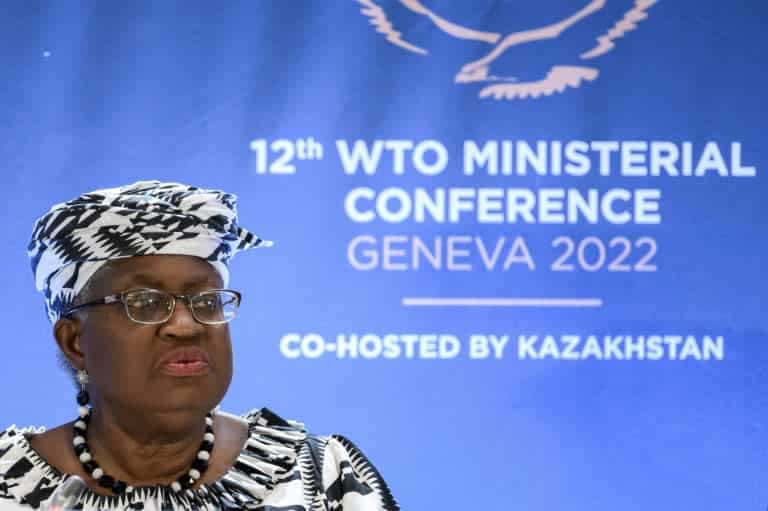WTO ministerial conference extended by a day to try forge an outcome

Geneva: World Trade Organization director general Ngozi Okonjo-Iweala has decided to extend the ongoing 12th ministerial conference by a day as the 164 member countries are yet to arrive at a consensus on any of the key issues on the table. The four-day ministerial conference will now conclude on Thursday.
“…Following DG’s consultation with the MC12 chairs, vice chairs, and the minister facilitators, delegations are advised that the MC12 conference will be extended by one day until Thursday, June 16, 3pm,” said a communication from the WTO.
“It requires that we work harder and work nights, whatever it takes to be able to do it. The good news is … that progress is being made but it needs a little more work and more time,” said Okonjo-Iweala. “The not so good news is that we are running out of time, so I think it is really time for ministers to make the requisite decisions that need to be made.”
The MC12 Chair Timur Suleimenov indicated after the third day of meetings that an agreement on fisheries and agriculture may be tough. “The WTO members’ positions were not as flexible as I would have wished them to be at this point,” he said.
While the developed countries have hardened positions on the TRIPS waiver issue, the developing countries led by India are pressing for a balanced outcome on fisheries and agriculture issues.
India is also pressing for allowing exports from the public stockholdings to support countries in need on a government-to-government basis. As per the current WTO rules, exports from public stockholdings are not allowed as it is considered to be market distorting.
India along with the G-33 nations is unlikely to sign a deal without a permanent solution.
Similarly, with patents waiver for covid-19 vaccines, the UK and Switzerland want to further limit the scope of an agreement, whereas developing countries want the scope of the deal to widen to include Covid drugs and diagnostics.
And in fisheries subsidies, developing nations led by India have clearly said they will not sign the agreement if a longer transition period is not part of it.
“The outcome on any issues seems very difficult at the moment. There is no consensus emerging even in the smaller group meetings. There is unlikely to be any major headway on either the issue of agriculture, patents, or fisheries,” said an official.





